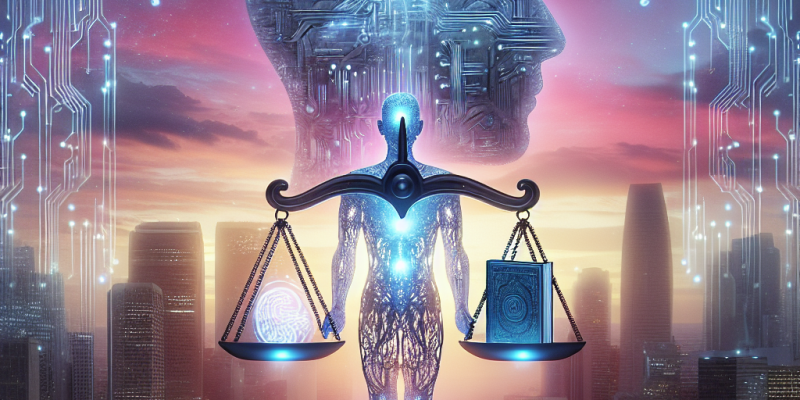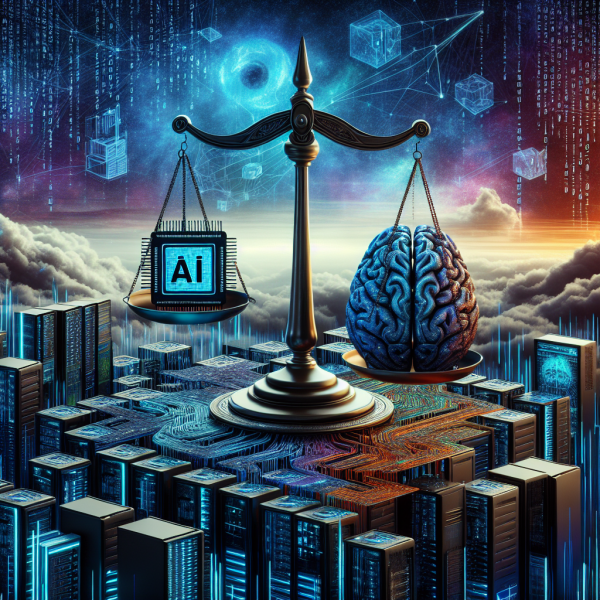The Rise of Ethical AI: Navigating Challenges in 2024

As we step into 2024, the discourse around artificial intelligence (AI) has evolved significantly from its early days of mere technological fascination to a profound concern over ethical implications and societal impacts. The rise of ethical AI reflects a growing awareness of the responsibilities that come with advanced technology. This transition is not merely about creating intelligent systems but ensuring that these systems are developed, deployed, and governed in ways that are ethical, equitable, and beneficial for all.
The Landscape of Ethical AI in 2024
In recent years, AI technologies have permeated various sectors, including healthcare, finance, education, and law enforcement. With their potential to revolutionize processes and enhance efficiency, these technologies have also raised serious ethical questions. In 2024, we witness a robust movement towards ethical AI, characterized by:
-
Global Standards and Frameworks: Governments and international organizations are beginning to recognize the need for shared ethical guidelines. In 2023, the EU introduced the AI Act, aiming to regulate high-risk AI applications effectively. This trend continues into 2024, with nations collaborating to establish frameworks that ensure accountability, transparency, and citizen rights.
-
Corporate Responsibility: Companies are under increasing pressure from consumers, stakeholders, and advocacy groups to prioritize ethical considerations in their AI initiatives. Organizations like the Partnership on AI and the AI Ethics Lab are spearheading efforts to create industry standards, conduct ethical audits, and implement responsible use policies.
- Public Awareness and Engagement: As the general population becomes more informed about the potential repercussions of AI, there is a rising demand for inclusivity in AI development. Public discourse surrounding issues of bias, privacy, and surveillance continues to grow, prompting companies to engage with communities and stakeholders to ensure ethical oversight.
Key Challenges in Ethical AI
While the march towards ethical AI is promising, it is by no means straightforward. Several challenges must be navigated:
-
Bias and Fairness: One of the most pressing issues in AI ethics is the risk of perpetuating existing biases present in training datasets. Inaccurate or biased training leads to systems that can reinforce discrimination in criminal justice, hiring practices, and beyond. The challenge lies in developing algorithms that recognize and mitigate bias without compromising performance.
-
Transparency and Explainability: As AI systems become more complex, understanding their decision-making processes becomes increasingly difficult. There is a growing demand for models that are interpretable and accountable. Stakeholders want assurance that AI systems can provide explanations for their outputs, especially in high-stakes decisions like medical diagnoses or loan approvals.
-
Data Privacy and Security: With the rise of AI capabilities comes the increased risk of data breaches and misuse of personal information. In 2024, it is imperative for organizations to prioritize data protection and ensure that their AI systems comply with privacy regulations such as GDPR and CCPA, while also implementing best practices for data security.
- Autonomy and Control: As AI systems gain greater autonomy, questions arise about the control humans have over these technologies. Striking a balance between leveraging AI’s capabilities and maintaining human oversight is critical to prevent unintended consequences that could arise from autonomous systems making decisions in complex situations.
The Path Forward
To navigate these challenges, a multifaceted approach is required:
-
Interdisciplinary Collaboration: Bridging the gap between technologists, ethicists, policymakers, and users is essential. Collaborations can help create systems that are not only innovative but also socially responsible and broadly beneficial.
-
Education and Training: Addressing ethical AI in educational curricula is vital. By training the next generation of data scientists and AI engineers in ethics, practitioners will be better equipped to consider the societal impacts of their work.
- Ongoing Dialogue and Adaptation: The dynamic nature of AI technology necessitates continuous dialogue between stakeholders. Policy frameworks must be adaptive and responsive to technological advancements, ensuring that ethical considerations evolve alongside AI capabilities.
Conclusion
The rise of ethical AI in 2024 represents a pivotal moment at the intersection of technology and societal values. As we strive to create AI systems that are not only intelligent but also fair and accountable, navigating the challenges ahead will require commitment from all sectors of society. By prioritizing ethical principles in AI development and deployment, we can harness the full potential of technology to create a future that benefits humanity as a whole—one where innovation and ethics go hand in hand.














